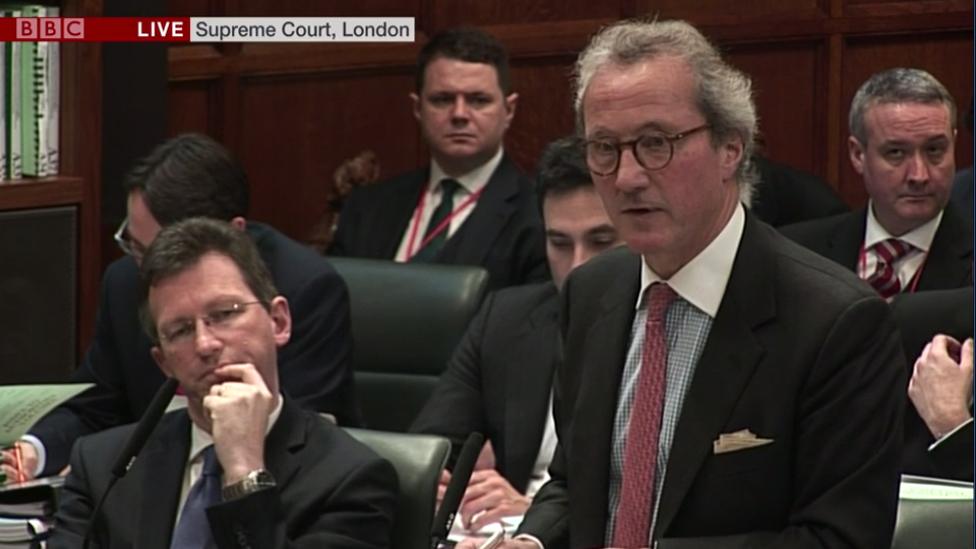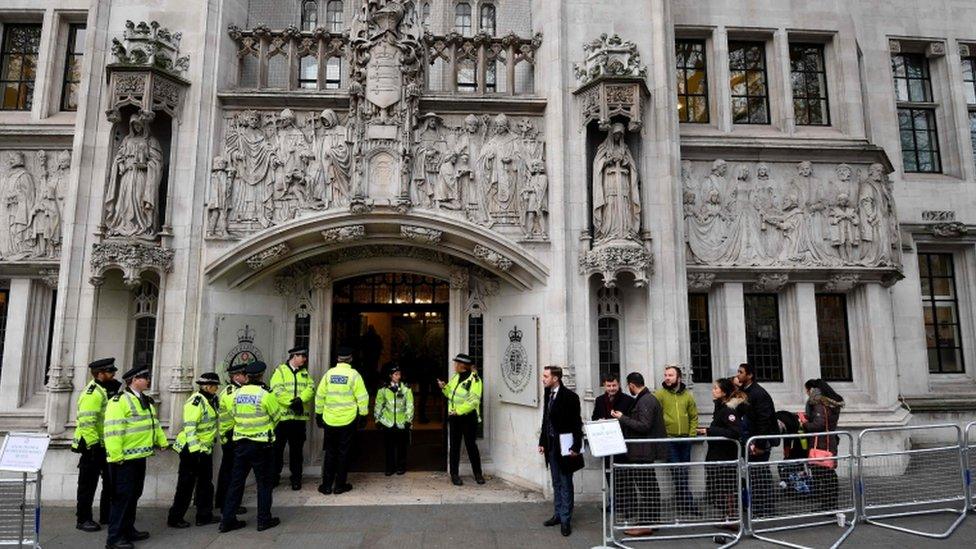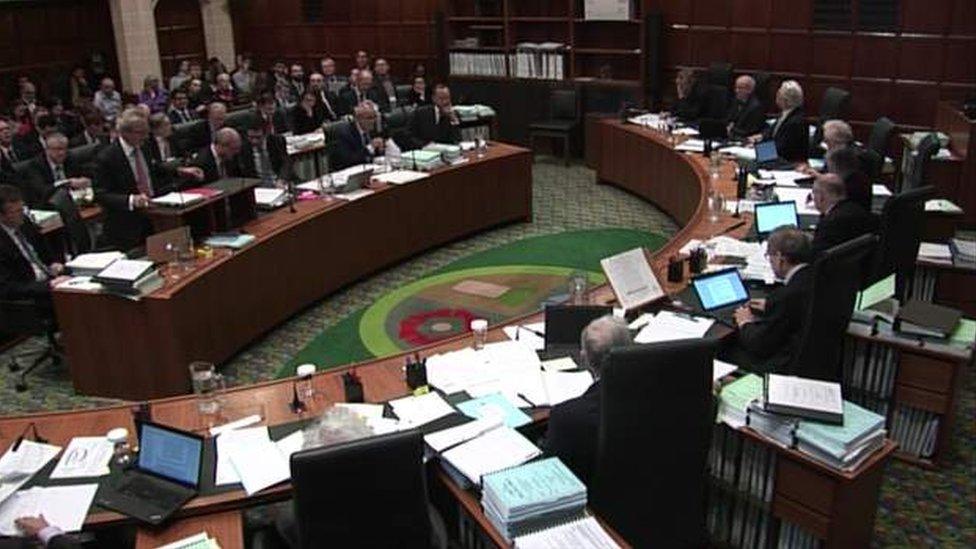Lord Keen: Holyrood 'should not have Article 50 say'
- Published

Lord Keen, the Advocate General for Scotland, advises the UK government on Scottish legal matters
Holyrood's consent is not needed before Brexit negotiations formally get under way, the Supreme Court has heard.
Lord Keen - the UK's government's Advocate General - said triggering Article 50 would not alter the "essential structure" of devolution.
The Scottish government believes Holyrood should be consulted before talks between the UK and EU begin.
But Lord Keen said that was "fatally undermined" by powers over foreign affairs being reserved to Westminster.
He was speaking as the UK's highest court heard a second day of argument in the historic Brexit legal challenge.
The Scottish government's top law officer, Lord Advocate James Wolffe, is due to put the case for Holyrood having a say in the triggering of Article 50 later this week.
Lord Keen told the panel of 11 judges that it was plain from the legislation setting up the Scottish Parliament that it had no authority over matters of international relations, such as EU membership.
As a result, he suggested devolution arguments could not be used to "qualify or abrogate" the UK government's right to exercise powers to trigger Article 50.
He said: "I would submit these reservations are fatal to reliance on devolution legislation as giving rise to any necessary implication, or indeed any other indication, that the government cannot exercise its foreign affairs and treaty prerogative in the ordinary way."
Pressed by Supreme Court President Lord Neuberger if he was saying "the answer is the same in Scotland as it is here (in the UK as a whole), Lord Keen replied that "essentially" it was.

The case at the Supreme Court is expected to continue until Thursday
Lord Keen went on to argue that the Sewel convention was a "political" accord and should not be seen as a legal obstacle to the UK government exercising its powers with regard to EU exit without reference to the Scottish Parliament.
The Sewel convention was an important component of the 1998 Scottish devolution settlement, which stipulated that Westminster would not normally legislate on devolved matters in Scotland without the consent of the Scottish Parliament.
'No legal difference'
But Lord Keen said it was a political convention concerning the legislative functions of the Westminster Parliament, and was "never intended to be a justiciable legal principle".
Pressed by Lord Sumption on whether he believed that the convention's incorporation into an act of Parliament makes "no legal difference to its effect", Lord Keen replied "yes".

The 11 Supreme Court justices will deliver their verdict in the new year
James Eadie QC, for the UK government, had earlier continued his attempt to persuade the Supreme Court justices to rule in its favour over its planned strategy for exiting the European Union.
He is urging the panel to overturn a ruling against the government by the High Court in London last month.
The Lord Chief Justice Lord Thomas and two other judges decided that Prime Minister Theresa May lacked power to use the royal prerogative to trigger Article 50 of the Lisbon Treaty and start the two-year process of negotiating Brexit without the prior authority of Parliament.
Long before the start of the second day of the appeal on Tuesday, members of the public joined a lengthy queue in the hope of getting a place inside the court to witness the proceedings.
The case, which will finish on Thursday with a judgment likely to be delivered in January, has attracted worldwide attention.